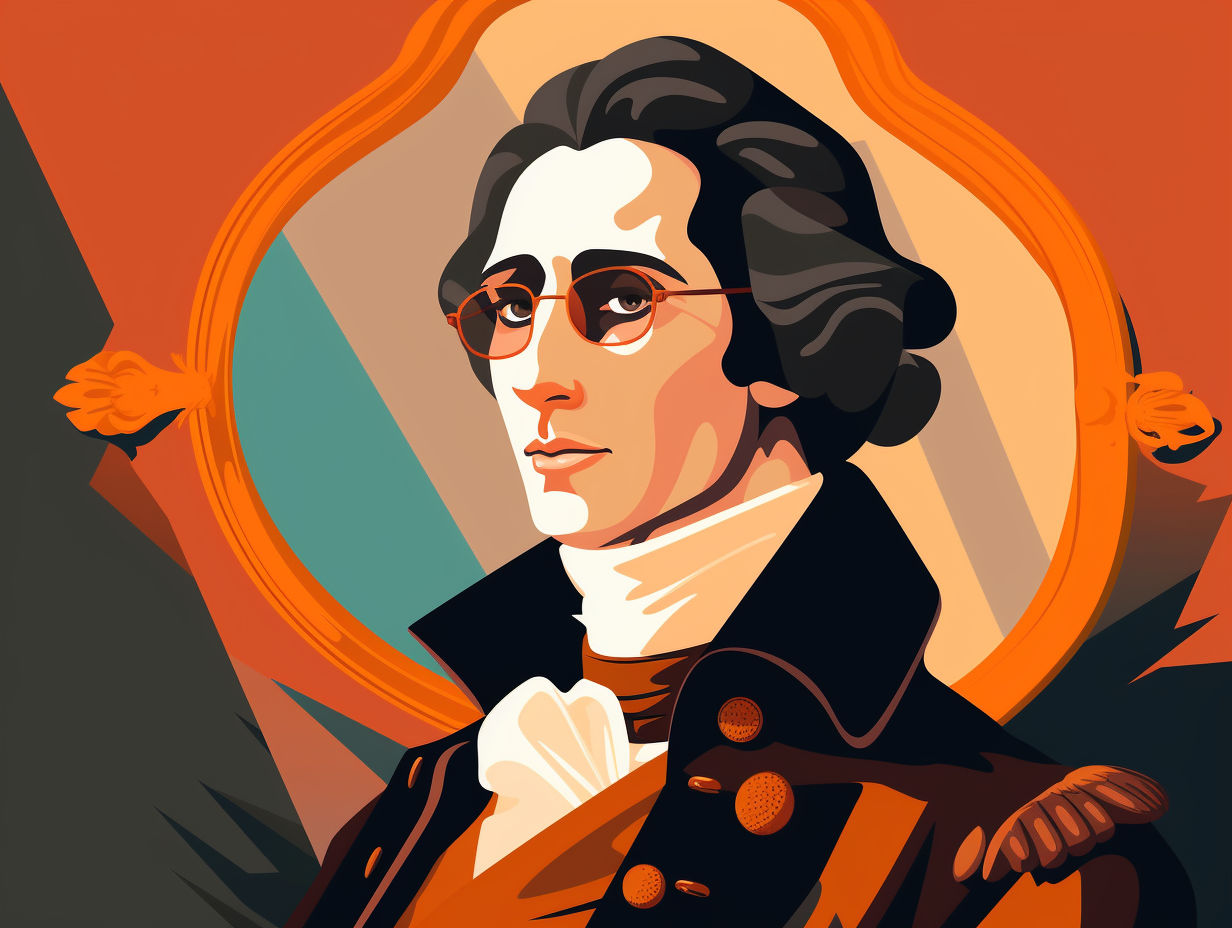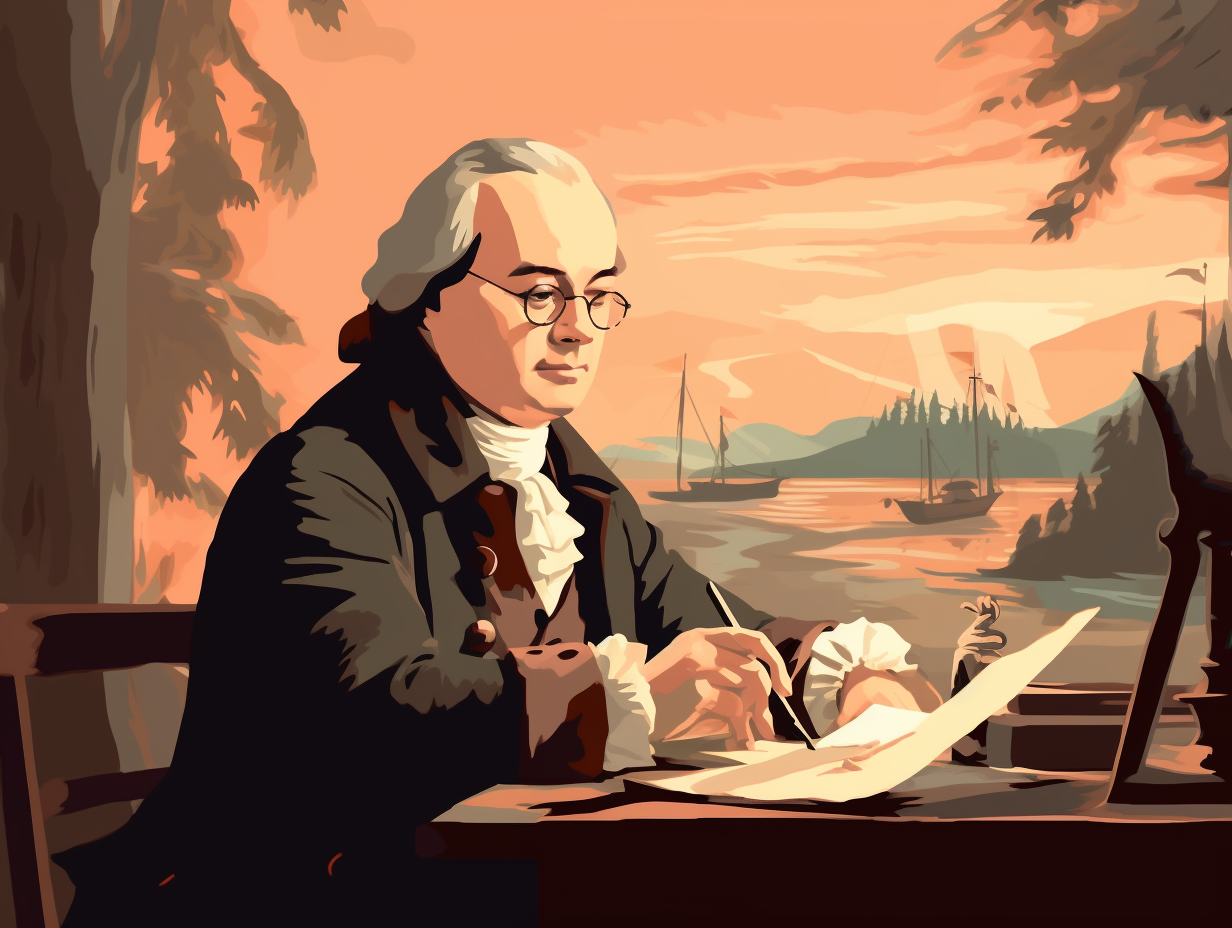Discover the Intriguing World of Julius Caesar: Top 12 Fun Facts You Never Knew!

1. Caesar Salad's Fishy Origins
In a fishy twist even M. Night Shyamalan wouldn't see coming, Julius Caesar wasn't the source of the anchovy invasion on our beloved Caesar Salad: The actual origin of the flavorful dish is credited to Italian chef Caesar Cardini, who whipped up the popular plate in Tijuana, Mexico, circa 1924—sans the salty little fish. The original recipe called for an ensemble of raw egg, lettuce stalks, olive oil, croutons, Parmesan cheese, and Worcestershire sauce to perform the culinary production.
Source => mccraystavern.com
2. Cipher Treadmill Inventor
Before Caesar's salad days went up in smoke, he was busy inventing the world's first Caesar cipher treadmill: Julius Caesar actually used cryptography to send secret messages to his generals, employing a method known as the Skytale cipher, which involved wrapping a strip of parchment around a rod and writing the message; the jumbled letters were then deciphered by the recipient using a rod of identical size, making it a much more secure system than the Caesar cipher.
Source => ghostvolt.com

Did you know Cleopatra had royal pythons as pets and believed she was the goddess Isis? Discover her slithering secrets and more fun facts!
=> Fun Facts about Cleopatra
3. Leap Year Mastermind
Talk about a major leap: Julius Caesar didn't merely stumble upon the concept of the leap year; he and philosopher Sosigenes of Alexandria concocted a plot to swipe a day every four years from the Egyptian solar calendar and sneak it into the Roman calendar as Leap Day, starting from January 1st, 45 BCE.
Source => history.com
4. Pirate Negotiator Extraordinaire
Ahoy there, pirate negotiator extraordinaire: Julius Caesar was once nabbed by sea bandits in the Aegean, and not only did he haggle his own ransom price upward, but he also spent his captivity bossing the pirates around and playfully promising crucifixions. Once freed, he made good on his word by gathering a naval force, hunting the pirates down, and serving them a hearty dish of crucifixion – solidifying his fearsome pirate-fighter reputation.
Source => britannica.com

5. Julian Calendar Creator
If Julius Caesar had a dollar for every Julius Caesar reference ever made, he'd probably use it to buy calendars with his own face on them - but alas, history had a different plan: Caesar is actually the mastermind behind the creation of the Julian Calendar, where he established January 1 as the start of the year and introduced two new months, July and August, named after himself and his successor Augustus Caesar. However, the whole personalized calendar thing is purely a myth, so no ancient selfies to be found here!
Source => italianartfortravelers.com
6. Fashion Icon Julius
You've heard of Sassy Caesar Salad, now meet Extravagant Julius Caesar: Julius Caesar was well-known for flaunting his unique fashion sense, opting for wrist-length sleeves with fringes on his purple senatorial tunic and a loosely fastened belt. His unconventional wardrobe choices grabbed the attention of many, even leading Sulla to remark, "beware of that boy with the loose clothes!"
Source => history.com
7. Caesar & Cleopatra's Controversial Son
Well, Caesar had a son, but it wasn't exactly Cleo-cut: Julius Caesar fathered a child with Cleopatra, but he never officially recognized the boy as his son in Rome or named him Caesarion. However, Egyptian hieroglyphics depict the child as a Pharaoh and Caesar's offspring, and after Julius's assassination, Cleopatra tried to promote her son as the true heir, causing political chaos. The plot thickened, and sadly, young Caesarion met his demise after Cleopatra's defeat by Octavian in 31 BC.
Source => ucl.ac.uk
8. Augustus Caesar: Decluttering Expert
In a move that would make even Marie Kondo proud, Augustus Caesar – Julius Caesar's great-nephew and heir – swooped in and organized the heck out of the Roman Empire: From establishing a systematic taxation method and promoting marital stability, to renewing religious practices and annexing lands like Egypt, Spain, central Europe, and Judea, Augustus was a one-man decluttering expert on a colossal scale, eventually even earning his divine organizer title from the Senate upon his death.
Source => education.nationalgeographic.org
9. Arts Patron and Literary Lover
You might say Julius Caesar was the original patron of the arts, or perhaps the ancient world's own Leonardo da Vinci without the painting skills: This Roman military genius wasn't just all about conquering lands and calling dibs on salad names, he was also passionate for literature and theater, patronizing poets and playwrights, igniting the creative arena of Rome, and potentially writing some of his own works that didn't quite make it to our bookshelves today.
Source => en.wikipedia.org

10. Rome's Forum Bonfire Guest of Honor
When Rome's Forum almost turned into a bonfire, Julius Caesar was the guest of honor: His public cremation took place there, with mourners throwing various objects onto the pyre, causing the flames to go out of control and almost burn down the entire Forum. This emotional response to Caesar's death fueled political tensions leading to a civil war between his assassins and supporters, including his grandnephew and adopted son, Gaius Octavius.
Source => runcfs.com
11. Shipwrecked Pool Party Decor
When Julius Caesar wanted people to sea (pun intended) just how great he was, he decided to throw a shipwrecked pool party at his temple: The Roman Forum's Caesar temple was adorned with parts of ships taken from Augustus Caesar's victorious naval battle against Marc Antony and Cleopatra at the Battle of Actium, serving as a maritime museum of sorts to showcase his military accomplishments and flaunt his glory.
Source => study.com
12. Bureaucracy Blocking Caesar's Triumph
In a classic case of Roman bureaucracy raining on Caesar's parade: Julius Caesar was denied a triumph after his victory in Spain because he hadn't yet held a consulship, a requirement back then. It wasn't until he donned the toga of consul and busted some senatorial moves that he was granted a triumph for his victories in Gaul and Britain.
Source => en.wikipedia.org
Related Fun Facts




















